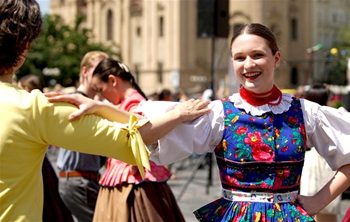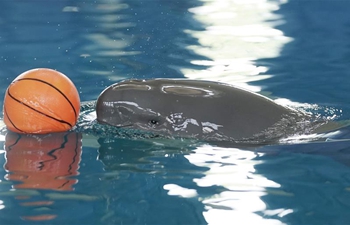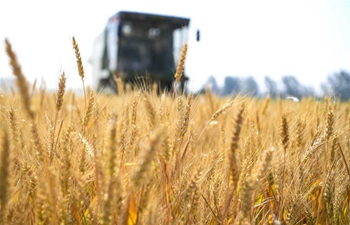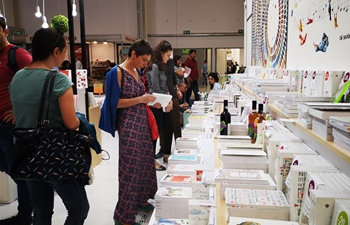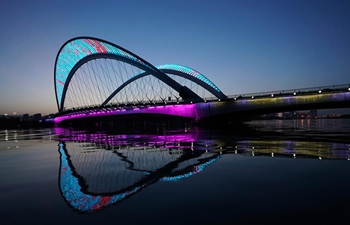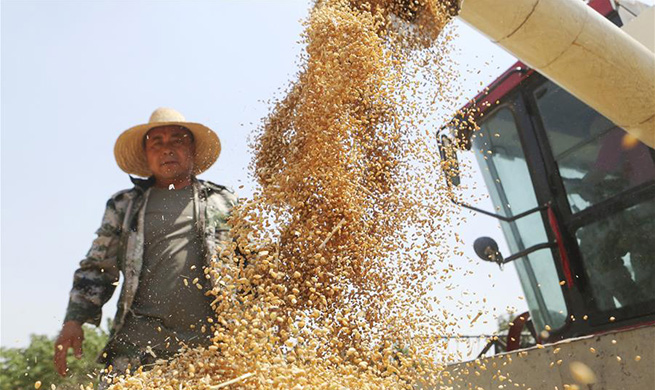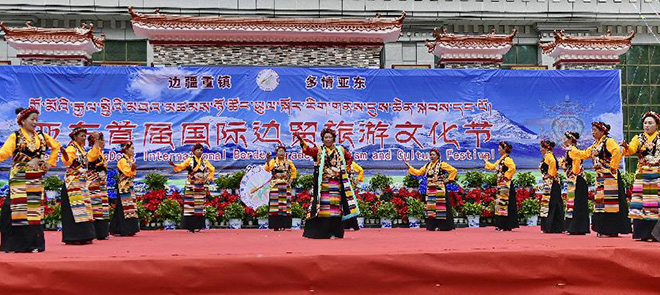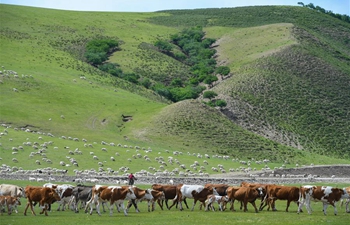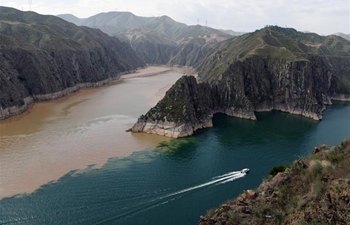BERLIN, June 3 (Xinhua) -- Following the unexpected resignation of its leader Andrea Nahles on Sunday, the German Social Democratic Party (SPD) will temporarily be led by a trio, German media reported on Monday.
The SPD leadership proposed the state premiers of Mecklenburg-Western Pomerania and Rhineland-Palatinate, Manuela Schwesig and Malu Dreyer, as well as Hessian SPD leader Thorsten Schaefer-Guembel, the German press agency (dpa) reported.
After the SPD fell to a historic nationwide low in last month's European Parliament elections garnering just 15.8 percent of the vote, Nahles sent an email message to all SPD members on Sunday, informing them of her resignation and plunging both the SPD and the governing coalition with Chancellor Angela Merkel's conservative (CDU/CSU) union into uncertainty.
"The discussion with the party's board and the many feedbacks from the party have shown me that the necessary support for the exercise of my offices is no longer there," Nahles said. Since then she has also announced her decision to give up on politics.
Merkel spoke highly of her close cooperation with Nahles in government. "I have worked with her for many years, both as federal minister for labor and social affairs and as party and faction leader. I have always done it with confidence."
With regard to the future of government coalition of the SPD-CDU/CSU, which have traditionally been Germany's largest parties, Merkel said "we will continue the government's work with all seriousness. We will above all do it with a great sense of responsibility."
However, Germany's smaller parties, boosted by good results from the European elections, feel that the grand coalition is on a shaky ground and are openly thinking about new elections should the SPD decide to abandon the coalition after Nahles's resignation.
Annalena Baerbock, co-leader of Germany's Green Party, spoke out against forming a new coalition in the German parliament and made it clear that the Greens would not be available as "the spare wheel" to keep Chancellor Merkel in power.
Speaking to national public broadcaster ZDF on Monday, Baerbock said if the current coalition was not continuing, Germans should be called to vote again to decide about a future government.
The German Green Party which had only won 8.9 percent in the national elections in 2017, celebrated a major success in the recent European election and surged to 20.5 percent, decidedly overtaking the former "people's party" SPD.
Germany's Left Party (Die Linke) was also supportive of the idea of holding early elections. Parliamentary leader Dietmar Bartsch told ZDF that "the former grand coalition is in chaos. I believe a fair solution now would be to ask the voters."
Supporting Chancellor Merkel, Markus Soeder of the CDU's sister party CSU advocated stability. "It is not about speculation about new elections, but about the stability Germany needs," he said.
In these times, he added, it would be a "serious mistake for Germany to stumble willfully into a new election." Enditem
